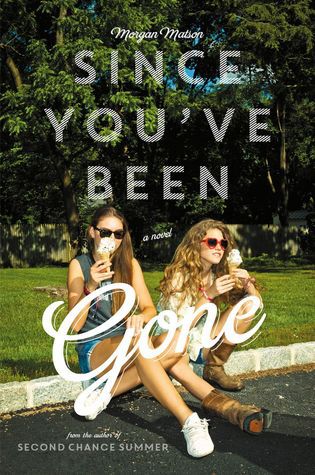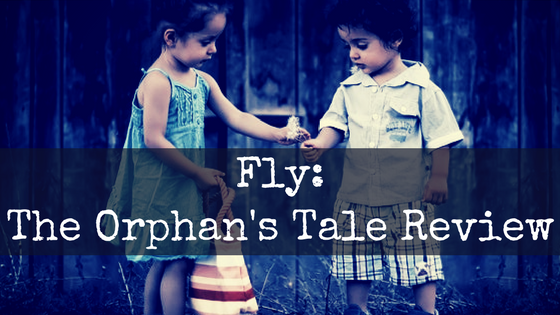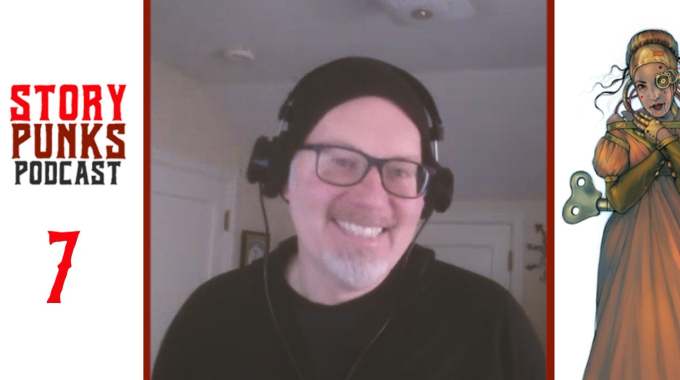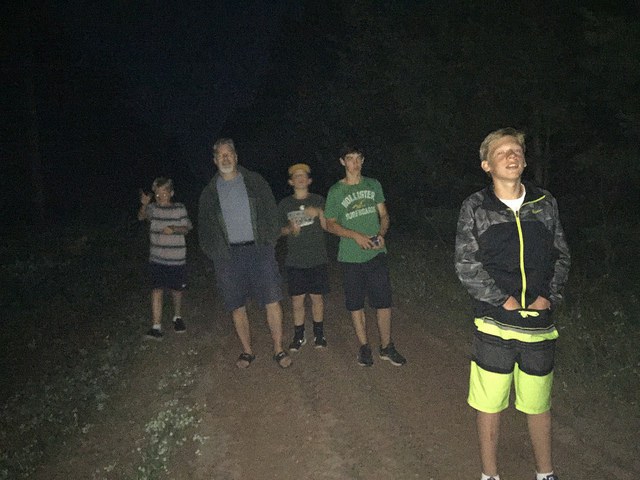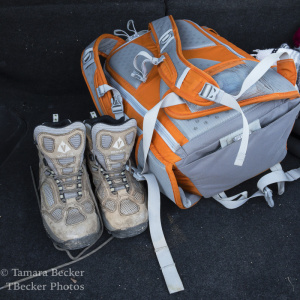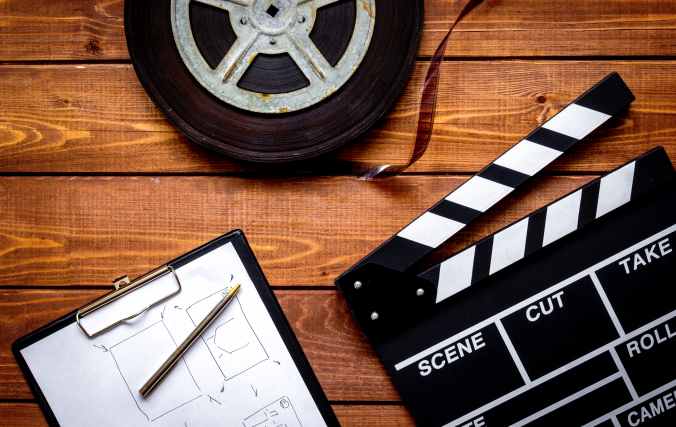
After recently seeing the touching movie Wonder at the cinema, based on the R. J. Palacio novel of the same name, it got me thinking about book to film adaptations. Since the inception of film and television, hundreds of works of fiction have been adapted for screens big and small. Classic literature often became classic film in turn with the development of this newer medium. Stories which resonate with audiences as written words are understandably ideal source material for cinema. However, whether or not the interpretation does the original justice is the vital question.
Particularly popular texts often get multiple adapatations over the years, from the works of Shakespeare and Charles Dickens to horror icons like Bram Stoker’s Dracula and Mary Shelley’s Frankenstein. When this happens, audiences will often choose a favourite version to be faithful to. This is also why people tend to be sceptical of remakes, which have become more and more common as the original films gradually become outdated.
This doesn’t mean that there can only ever be one visual adaptation of a written work. For example, many of Disney’s ever-beloved movies are based on classic fairytales, and Disney is even in the ongoing process of remaking several of its older movies into live-action. That being said, the recent news that the epic fantasy trilogy Lord of the Rings will be adapted for streaming TV by Amazon was an eyebrow-raiser.
J. R. R. Tolkien’s Lord of the Rings and J. K. Rowling’s Harry Potter series top pretty much every list of favourite films adapted from books. As a fan of both of these series since I was a young child, they would obviously top my own personal list of favourites as well. Despite this, in the interest of originality I’ve chosen to leave these series out of my own list which features towards the end of this article.
Franchises based on book series like these have proven to be big money-makers, so the industry continues to fund them. Yet it tends to become noticeable when it’s more about the money than the story, particularly when a single book is unnecessarily split into more than one film. The subsequent film adaptations of The Hobbit were underwhelming for me. And though Harry Potter spin-off Fantastic Beasts and Where to Find Them had some heart, the baffling defence of Johnny Depp and decision not to recast him means I’ll most likely be giving the sequel The Crimes of Grindelwald a miss next year.
The desperation to create the Next Big Thing has led to some books being optioned for movies before the book itself has even been released, such as Jennifer Niven’s 2015 debut novel All The Bright Places, expected in cinemas in 2018. The popularity of the movie versions of John Green’s young adult novels The Fault In Our Stars and Paper Towns seem to have spurred a push to adapt more young adult books, though these kind of books usually make cheesily over-sentimental and ultimately unsatisfying films.
An example of this was the 2014 adaptation of Gayle Forman’s If I Stay, a book that broke my heart when I read it as a teenager. The tenderness and exploration of the bigger picture from the book just did not seem to translate. Maybe the only way to avoid being disappointed when it comes to film adaptations of books is to not read the book first. I never got around to reading Me and Earl and the Dying Girl by Jesse Andrews, but I enjoyed the 2015 film and found it successfully funny and moving. Perhaps young adult adaptations such as these shouldn’t be judged too harshly though, considering the eye-rollingly sappy films produced from various Nicholas Sparks novels.
Aside from contemporary fiction, the biggest breadwinners in book-to-film adaptations are the fantasy series which become blockbuster franchises. I can’t quite bring myself to talk about Twilight, but following the vampire takeover, dystopian fiction became the new trend. From The Hunger Games to Divergent to The Maze Runner, spirited teens fighting against reductive totalitarian systems were all that graced our screens for a hot minute. And unfortunately, even in the cases of books I loved such as The Hunger Games, the films just never seemed to match up to expectations or reach their full potential.
Maybe this is why many similar adaptations that should have been more successful never quite lifted off the ground. Some of these were Eragon, Inkheart, Cirque du Freak: The Vampire’s Assistant, I Am Number Four, Beautiful Creatures, and the two Percy Jackson movies based on the book series by Rick Riordan. As shown by these underwhelming releases, populating the cast with big-star names can’t save a poorly adapted film. Despite the success of The Lion, The Witch and The Wardrobe, even The Chronicles of Narnia suffered a decline with its two sequels. We’ll have to wait another few years to see whether the upcoming revival will succeed or not.
Sometimes novels fare better as television shows, with Shadowhunters on Netflix achieving mild success compared to the brutal critical response to the 2013 movie The Mortal Instruments: City of Bones. While 2007’s adaptation of the first novel in Philip Pullman’s His Dark Materials trilogy, retitled The Golden Compass, failed to impress and the sequels were never made, the BBC has been working on a much-anticipated TV adaptation for the last couple of years. Another series I loved growing up was Lemony Snicket’s A Series of Unfortunate Events, which was never developed for the big screen beyond the first three books being crammed into one movie. Also recently adapted for Netflix, the new TV version seems a better-suited format.
A genre that has thrived on adapting books to films for decades has been horror. Stephen King novels are frequently adapted into infamous horror movies, sometimes even multiple ones, such as the recent remakes of Carrie and IT. The thriller novel has been enjoying popularity too, with the critically-acclaimed adaptation of Gone Girl being followed by the admittedly less gripping The Girl on the Train. Stieg Larsson’s best-selling The Girl With the Dragon Tattoo was already remade into an English-speaking film (although it was met with somewhat less enthusiasm than the previous Swedish film adaptations) and will be rebooted again with a new story next year.
There are quite a few beloved films which people might not even know were based on books, such as Forrest Gump, Jaws, Jurassic Park, Atonement, The Curious Case of Benjamin Button – even Mean Girls and The Social Network. In these cases, it might prove the theory that it’s easier to love an adaptation when you don’t have pre-conceived ideas of the source material. So, to make it more authentic, I narrowed down my favourites list to film adaptations where I’ve actually read the book. I’ll also list some of my favourite films that happen to be based on books I haven’t read.
10 Favourite Book to Film Adaptations Matilda (1996)I don’t know how many times I’ve seen Matilda over the years, but it’s been a favourite throughout my childhood. Adapted from the book by popular children’s author Roald Dahl, the story of a bookworm little girl stuck with an abusive family who turned out to possess supernatural powers fascinated me in the same vein as Harry Potter did. Even over 20 years later, the film still holds up as an enjoyable watch, with a wonderful performance from child actor Mara Wilson (who incidentally also starred in another of my favourite childhood films, the 1994 remake of the Christmas movie Miracle on 34th Street). Dahl’s stories often featured children getting their own back on horrible adults, and Matilda does the same to vindicate her kind teacher Miss Honey against the actions of the cruel headteacher Miss Trunchbull. Doing so ensures a happy ending for herself too, escaping from the family she was never understood by.
Holes (2003)After reading Louis Sachar’s 1998 novel Holes in Year 8 English class, I also saw the 2003 film based on the book. Despite Shia LaBeouf not being fat as the main character Stanley Yelnats was in the novel, the film was largely faithful to the source material, as Sachar wrote the screenplay. The movie has become iconic for many people who saw it growing up, with parts such as Sam’s “I can fix that” and Madame Zeroni’s curse gaining meme status online. The story itself makes for an imaginative and layered experience, with adventure, romance, fantasy, and comedy aspects. After being falsely arrested for stealing a pair of trainers, Stanley attends a juvenile detention camp where the inmates are forced to dig holes. This leads to the uncovering of an interwoven history involving Stanley, fellow inmate and friend Zero, and the outlaw Kissin’ Kate Barlow. Holes is often considered to be one of the most satisfying adaptations of a book into a film.
Millions (2004)Frank Cottrell Boyce actually adapted the novel Millions from the screenplay he wrote for the film, which was released six months ahead of the movie. Still, Millions counts as one of my favourite films which also happens to be a book. The story revolves around a young boy named Damian who becomes obsessed with saints following the death of his mother. When he finds a bag full of money left by train robbers, he and his brother endeavour to spend it before the fictional currency transition from the pound to the euro. Danny Boyle directed this heartwarming English film, which was widely praised by critics as a delightful family movie. Damian’s naiveté and earnest kindness are enough to charm anyone, while the robbers’ pursuit of the missing money raises the stakes.
Coraline (2009)Director of several films people often mistakenly attribute to their producer Tim Burton, Henry Selick adapted Neil Gaiman’s 2002 story Coraline as a stop-motion picture. He certainly brought the darkness of James and the Giant Peach and The Nightmare Before Christmas to this adaptation. I remember seeing it in the cinema and thinking that the scene in the Other Mother’s web towards the end was surely too terrifying for a movie aimed at children. The film alternates between the dreary real life world and a magical bright other world reached through a tiny hidden door in Coraline’s new house. To flesh out the story, Selick added the new character Wybie, who helps Coraline in defeating the sinister plans of the Other Mother and rescuing the Ghost Children. Though this does take away some of Coraline’s agency, and the film didn’t include Coraline’s important speech about what bravery means, it’s still one of my all-time favourite movies.
Fantastic Mr. Fox (2009)Another film adapted from a book written by Roald Dahl, Fantastic Mr. Fox became a stop-motion animation with one of my favourite directors, Wes Anderson, at the helm. Henry Selick was initially attached to the project, before leaving to work on Coraline. Many of the animation crew had worked on Tim Burton’s Corpse Bride (2005). Following a fox and his family as they try to outsmart three alliterative farmers who go after Mr. Fox for stealing their wares, the adaptation varies from the book with some original characters and a slightly different ending. However, the changes work well, and the film is charmingly funny and somewhat quirky, in typical Anderson style. It also features a range of stars in the voice roles, such as George Clooney and Meryl Streep, in addition to Anderson regulars Bill Murray, Jason Schwartzman, Owen Wilson, and Willem Dafoe.
The Lovely Bones (2009)Director of The Lord of the Rings adaptations Peter Jackson also took on Alice Sebold’s poignant 2002 novel The Lovely Bones. Many people thought the film didn’t address the gruesome subject matter significantly enough, but I would still praise it for avoiding gratuitous violence. A 13-year-old Saoirse Ronan starred as the lead character Susie, a young girl trapped in the in-between after being murdered by a neighbour. The twists and turns as Susie’s family try to bring her killer to justice and come to terms with their loss are underlined with the sadness that no matter what happens on this side of the veil, Susie will never get her life back and return from the beyond. It’s hard not to be heartbroken at the end of the movie when Susie repeats her opening lines, closing with, “I was here for a moment, and then I was gone. I wish you all a long and happy life.”
The Perks of Being A Wallflower (2012)The director of the recent adaptation of Wonder, Stephen Chbosky, also directed the adaptation of his own book from 1999, The Perks of Being a Wallflower. Set in the early 1990s and starring Logan Lerman, Emma Watson, and Ezra Miller as outcast high school students, the film addresses the issues from the book with heartfelt honesty. Main character Charlie struggles with poor mental health resulting from childhood trauma and the loss of his best friend to suicide, finding some joy with new friends Sam and Patrick, who face their own struggles. The film has been applauded for its sincerity, addressing sexual abuse, homophobia, and domestic abuse against a backdrop of coming-of-age struggles. The soundtrack and suitable accompanying scenes bring the book’s wistful nostalgia to life, especially “Come on Eileen”, “Asleep” and “Heroes.”
Life of Pi (2012)As a wearer of regular glasses, I’m not a fan of the headache of 3D films. Despite this, Ang Lee’s visually stunning adaptation of Yann Martel’s 2001 hit adventure novel Life of Pi was completely worth it. I first saw it in an otherwise empty theatre on Boxing Day and adored this rendition of the story. Newcomer Suraj Sharma did an incredible job as the lead Piscine Patel, most of the time acting gainst nothing which would later become a computer-animated tiger. The film brings Pi’s life back in India and fight for survival on the ocean into vivid existence, just as emotionally resonant as it is colourful. Some criticized the movie for being less ambiguous than the book, but it still successfully explored the themes of spirituality and endurance. Life of Pi deservedly won four Oscars the following year, including Best Cinematography and Best Special Effects.
The Great Gatsby (2013)Baz Luhrmann’s adaptation of F. Scott Fitzgerald’s 1925 classic American Dream novel was criticized for having too much style and not enough substance. However, I found it to be a dazzling and enjoyable translation. Luhrmann’s films are known for being theatrical, and The Great Gatsby didn’t disappoint in this regard. While many critics considered it noisy and cluttered, I thought the visual extravagance and modernized soundtrack were the best parts. The cinematography may not have been as iconic as his 1996 adaptation Romeo + Juliet, but it was still beautiful and vibrant. Despite the flashiness, the emotion and tragedy of the story were still conveyed successfully by leading stars Leonoardo DiCaprio and Carey Mulligan. The adaptation was even faithful to the book’s dialogue and descriptions, which fans of any book usually want.
A Monster Calls (2016)Based on an idea by Siobhan Dowd, who sadly passed away from breast cancer in 2007, A Monster Calls was later written in 2011 by one of my favourite authors, Patrick Ness. Whenever Patrick Ness is involved, the story is bound to be heart-wrenching, and the fact that this is a children’s book doesn’t make it any less so. Ness wrote the screenplay himself, and J. A. Bayona directed the film adaptation. Lewis MacDougall plays Conor, a young boy struggling with the separation of his parents, bullying at school, and his mother’s cancer. A tree monster voiced by Liam Neeson visits Conor at night, telling him three stories in exchange for one story Conor must tell to the monster: his own truth. Despite a positive reception from critics and general audiences as well as excellent performances from stars Felicity Jones and Sigourney Weaver, A Monster Calls seems to have flown under the radar and deserves much more attention.
A Few More of My FavouritesSpecial mentions go to The Book Thief and The Invention of Hugo Cabret. Both are books I loved as a teenager which had lovely film adaptations of their own. I also loved the 1996 adaptation of James and the Giant Peach, but I thought having two movies based on Roald Dahl books and one Henry Selick film already was enough for one list.
There are plenty of movies I love based on books I’ve never gotten around to reading, too. Among these are Carol (The Price of Salt), The Help, Bridge to Terabithia, Let The Right One In, I Am Legend, Trainspotting (and T2), Fight Club, The Devil Wears Prada, Hidden Figures, the St Trinian’s films, Freaky Friday and Confessions of a Teenage Drama Queen.
Even if you’re not necessarily the intended demographic, you can still enjoy movies based on children’s books as well. Some of my personal favourites are the charming family-friendly animations How to Train Your Dragon and Cloudy With a Chance of Meatballs.
Book to Film Adaptations to Look Out For in 2018To close this essay of a post, let’s take a look at some of the films adapted from books which will be hitting cinema screens soon. Most of these are scheduled for release next year; but before then, the family movie Ferdinand arrived in the UK this week. The story follows a bull named Ferdinand who would rather sit and smell flowers than fight, based on the 1936 children’s book by Munro Leaf (which also inspired the title of one of my favourite albums). The film features voice acting from John Cena and Kate McKinnon.
The movie adaptation of Jeff VanderMeer’s 2014 novel Annihilation, directed by Ex Machina‘s Alex Garland, is due for a limited cinematic release in February. The surreal science fiction thriller is rumoured to have been translated into a very intellectual film with a shocking ending. Sounds like something that’s bound to spark conversation and is not to be missed. If the film does well, maybe the subsequent books in VanderMeer’s trilogy will make it to the big screen as well.
There’s already a lot of buzz around Disney’s adaptation of 1962 science fantasy novel A Wrinkle In Time. Due for release next March, the movie stars Oprah Winfrey, Reese Witherspoon, and Mindy Kaling as supernatural beings helping a young girl find her missing father on different planets. As well as featuring a diverse cast, this milestone film made Ava DuVernay the first woman of colour to direct a big live-action movie with a budget of over 100 million dollars.
March will also see the release of Love, Simon. Based on the book Simon vs. the Homo Sapiens Agenda by Becky Albertalli, the snappier title comes from the main character’s e-mail sign-off. Teen drama comedies can seem quite repetitive and sometimes turn out as derivative fluff pieces. What makes Love, Simon different is that it’s a coming-of-age coming out story about a teenage boy in love with another teenage boy. Finally, gay teenagers will get a John Hughes-style teen romance film that’s actually meant for them.
Like the aforementioned All The Bright Places, also due for release next year, the film adaptation of The Hate U Give by Angie Thomas was optioned before the book was even published earlier this year. The Hunger Games star Amandla Stenberg has been attached to the project as lead character Starr since March 2016. Influenced by the frequent murders of black people at the hands of police officers in the USA and the resulting Black Lives Matter movement, there’s bound to be some racist backlash against the telling of this story. Which makes it all the more important that people go out and support it.
As a fan of Ruta Sepetys’ historical fiction novels, I was excited to learn that Between Shades of Gray has been adapted into a film titled Ashes in the Snow (most likely to avoid confusion with those other films about shades of gray). The harrowing tale follows a teenage girl whose family gets deported to Siberia during Stalin’s occupation of the Baltic States in World War II. The film is only currently listed for release in the USA and Lithuania next autumn, so I hope in the meantime the release gets extended.
Back in 2016, it was reported that Kirsten Dunst would be directing a new adaptation of Sylvia Plath’s The Bell Jar, starring Dakota Fanning as Esther Greenwood. Despite being slated to film in early 2017 and release in 2018, there doesn’t seem to have been any updates, and the movie is still marked as being in pre-production on IMDb. The latest information from Dakota Fanning is that they are still trying to get the film made.
There are several other book-to-film adaptations coming out in 2018, including Crazy Rich Asians starring Constance Wu, Where’d You Go, Bernadette with Cate Blanchett and Kristen Wiig, and sci-fi gamer fantasy Ready Player One. The third instalment in the Maze Runner film series, The Death Cure, also finally makes it to cinemas in 2018, after a production delay resulting from the main actor Dylan O’Brien being injured in an on-set car chase accident during initial filming in 2016.
Another adaptation I’m looking forward to is currently in production, but sadly isn’t scheduled for release until 2019. As mentioned previously, I’m a big fan of the works of Patrick Ness. I initially read the Chaos Walking trilogy for the Carnegie Medal reading group run by my high school librarian every year. Last summer when it was announced that Daisy Ridley (Rey in Star Wars) and Tom Holland (Peter Parker in Spider-Man: Homecoming) would play the main characters in The Knife of Never Letting Go, I knew this was definitely going to be worth seeing. If the adaptations do the trilogy justice, it could truly be something epic on the scale of previous young adult franchises.
Keep an eye out for all of these upcoming releases, and check out the films on my list of favourites if you haven’t already. Feel free to leave a comment and share your own favourite book-to-film adaptations below!
Advertisements Share this: